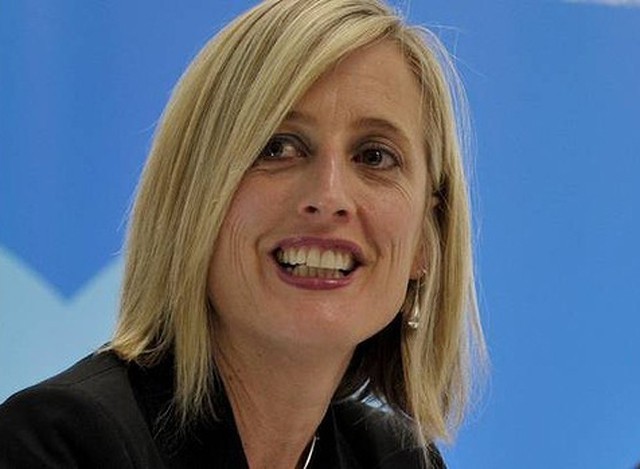Tony Abbott faces an immediate test on marriage equality, after the ACT Labor government yesterday declared it would introduce legislation to legalise gay marriage in the next sitting of parliament.
ACT Chief Minister Katy Gallagher said her government would once again “bring forward legislation that delivers equality for same-sex couples, legislation that promises them the right to marry”.
The Gallagher government’s move comes seven years after the Howard government used commonwealth powers to override ACT legislation to legalise same-sex civil unions.
As the number of federal MPs who support gay marriage grows despite the Coalition’s victory at last weekend’s election, the prime minister-designate’s gay sister Christine Forster said she did not care whether Kevin Rudd was the sponsor of a marriage equality bill, as long as it was introduced at a time where it had maximum opportunity for success.
“I wouldn’t want to see a bill rushed and possibly suffer another heavy defeat, which might mean it’s off the agenda for rest of this term,” Ms Forster told The Australian. “I sincerely hope the Coalition will allow a conscience vote, and I know there are members in the new partyroom who will argue very strongly for that to occur.”
Ms Gallagher said marriage equality was a reform that a “growing proportion of Australians want made”.
“It is a matter of time,” the Chief Minister said. “We would prefer to see the federal parliament legislate for a nationally consistent scheme, but in the absence of this we will act for the people of the ACT.
The Marriage Equality Bill 2013 will enable couples who are not able to marry under the Commonwealth Marriage Act 1961 to enter into marriage in the ACT.
It will provide for solemnisation, eligibility, dissolution and annulment, regulatory requirements and notice of intention in relation to same-sex marriages.”
Ms Gallagher said her government was determined to remove discrimination against same-sex couples and their families. “With this legislation, we will state loud and clear that all people have equal rights in our society and are treated equally by our laws,” she said.
In 2006, governor-general Michael Jeffery disallowed the territory’s civil unions legislation after intervention by Howard government attorney-general Philip Ruddock.
Mr Abbott could do the same, but last night his office did not reply to questions about the ACT legislation.
The Australian yesterday revealed that Mr Rudd is being urged to sponsor a private member’s bill next year to force federal parliament to consider the issue once more.
Sources have told The Australian that Mr Rudd is committed to the change, which he promised to deliver within 100 days of winning, and would consider sponsoring a private member’s bill to be put to the House of Representatives.
Australian Christian Lobby managing director Lyle Shelton said the issue of same-sex marriage achieved an incredibly high profile during the election
Mr Shelton said it should not be up to politicians to change a law that would have such a heavy impact on freedom of speech, belief and religion.
“The far-reaching consequences of changing the definition of marriage mean a conscience vote of the Australian people, not politicians, is what is needed,” Mr Shelton said.
Moves by the ACT and NSW parliaments to introduce same-sex marriage meant Australia risked having a hodgepodge of marriage laws when in reality the marriage power resided with the commonwealth, he said.
ACL’s election panel webcast to 300 churches last week heard former attorney-general Robert McClelland and former deputy prime minister John Anderson both call for a constitutional referendum to settle the matter.
“I think the High Court will ultimately, if there is a change in the law, be required to determine what the constitutional founders meant when they included the marriage power in the constitution,” Mr McClelland said.
“I don’t think that’s a comfortable place for the High Court to be.
I think if there is going to be any reform in this area, and I don’t think there should be, but if there is, it should be through the public debating it through the course of a referendum.”
Author: Patricia Karvelas
Publication: The Australian
Date: 13 September 2013

